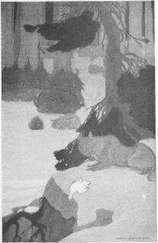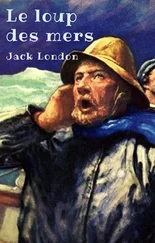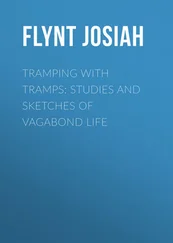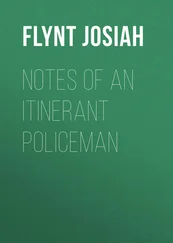Josiah Flynt - My Life
Здесь есть возможность читать онлайн «Josiah Flynt - My Life» — ознакомительный отрывок электронной книги совершенно бесплатно, а после прочтения отрывка купить полную версию. В некоторых случаях можно слушать аудио, скачать через торрент в формате fb2 и присутствует краткое содержание. Жанр: foreign_antique, foreign_prose, на английском языке. Описание произведения, (предисловие) а так же отзывы посетителей доступны на портале библиотеки ЛибКат.
- Название:My Life
- Автор:
- Жанр:
- Год:неизвестен
- ISBN:нет данных
- Рейтинг книги:5 / 5. Голосов: 1
-
Избранное:Добавить в избранное
- Отзывы:
-
Ваша оценка:
- 100
- 1
- 2
- 3
- 4
- 5
My Life: краткое содержание, описание и аннотация
Предлагаем к чтению аннотацию, описание, краткое содержание или предисловие (зависит от того, что написал сам автор книги «My Life»). Если вы не нашли необходимую информацию о книге — напишите в комментариях, мы постараемся отыскать её.
My Life — читать онлайн ознакомительный отрывок
Ниже представлен текст книги, разбитый по страницам. Система сохранения места последней прочитанной страницы, позволяет с удобством читать онлайн бесплатно книгу «My Life», без необходимости каждый раз заново искать на чём Вы остановились. Поставьте закладку, и сможете в любой момент перейти на страницу, на которой закончили чтение.
Интервал:
Закладка:
I shall never forget her conduct at my grandfather's – my mother's father – deathbed. An uncle had come to "Rest Cottage," warning us that grandfather was dying, and telling us to go over to the sickroom where grandmother and many of the other relatives were gathered. "Mame" and I took rear seats, on a doorstep, if I recall correctly. My grandfather was unconscious, and his sweet wife, my mother's mother, an invalid, sat in her rolling chair, watching her mate and father of her children, dying, the most lovely embodiment of resignation and desire "that God's will be done," that I can recall having seen. Of course, the women and children were sobbing, and "Mame" and I joined them. Pretty soon, I noticed that there was a lull in the sobbing – my grandfather had breathed his last and his suffering was over – but "Mame" had not noticed it, and continued to cry pretty noisily. "Let up, Mame," she claims that I whispered to her. "The others have stopped." I don't remember making this observation and advising "Mame" about it, but no doubt I did, for "Mame" was nothing if not honest.
CHAPTER IV
EARLY COLLEGE DAYS
In the foregoing chapters I have tried to give some idea of the kind of boy I was, say by the time I had reached my fifteenth year, or the calendar year 1884. There is no use denying that such wickedness as I displayed was due more to willful waywardness than to hereditary influences. Consequently, I have always felt justified in replying to a distant cousin as I did when she took me to task for making so much trouble and causing my family such anxiety.
"Can you imagine yourself doing such dreadful things when you get your senses back and are able to think clearly?" was the way her question was worded. My reply was: "In my senses or out of them, I certainly can't imagine any one else as having done them." And I can truthfully say that, as a boy, I was very little given to trying to shift the blame for my sins on other boys. I was not a "squealer," although I was an expert fibster when necessity seemed to call for a lie in place of the plain, unvarnished truth.
In the spring or early autumn of 1884 my mother and sisters went to Europe, and I was sent to a small Illinois college. The village home was broken up and for better or for worse, the five of us, in the years that were to follow, were to be either voluntary exiles abroad, or travelers at home or in foreign parts. Since that final break-up our complete family has never again been gathered together under one and the same roof.
In spite of a manly effort to overcome them, two traits dogged my steps to college as persistently as they had troubled me at home – the love of the tempting Beyond, and an alarming uncertainty in my mind about the meaning of the Law of Mine and Thine. It was going to take several wearisome and painful years yet before I was to become master of these miserable qualities. They were the worst pieces of baggage I took away with me. My better traits, as I recall them, were willingness and eagerness to learn when I was not under the spell of Die Ferne , a fair amount of receptivity in acquiring useful facts and information, and for most of the time a tractable well-weaning, amenable boy disposition. All of these good qualities were scattered to the four winds, however, when the call became irresistible. I stood to win as a student, if love for distant fields could be kept under control. Otherwise there was no telling what I might become or do. Under these circumstances I began my collegiate career in a denominational college in the western part of Illinois. My mother, of course, hoped for the best; and at the time of her departure it looked as if I had definitely struck the right road at last.
I remained for a little over two years at college advancing with conditions to my sophomore year. I paid for my board and lodging by "chore" work in a lawyer's home in the town, so that the expenses my mother had to meet were comparatively light. The studies that seemed to suit me best were history, historical geography and modern languages. Mathematics and Greek and Latin were tiresome subjects in which I made barely average progress. Mathematics were a snare and a delusion to me throughout my school and college life in America. I mean sometime to pick up my old arithmetic again and see whether maturer years may have given me a clearer insight into the examples and problems that formerly gave me so much trouble.
History, Geography and German, interested me from the start, and I usually stood well in these classes. History took hold of me just as biography did, and I used to read long and late such works as Motley's "Dutch Republic," Bancroft's "History of the United States," Prescott's books on Mexico and South America, and an interesting autobiography or biography was often more appealing to me than a novel or story. Indeed, I read very little fiction during the time I was at college, preferring to pore over an old geography and map out routes of travel to be enjoyed when I had made enough money to undertake them as legitimate enterprises, or, perhaps, as a hired explorer, whose services commanded remunerative prices. For a while the ambition to be a lawyer struggled with my traveling intentions, and I seriously considered taking a course in law in my benefactor's library and office when my academic course should be finished; but this resolve never came to anything because my academic studies were never finished.
For two years, and more, I had struggled as hard as any of my fellow students to support myself, keep up with my class, and probably harder than most of them to be "on the level," and above all things not to let Die Ferne entice me away from my new home and pleasant surroundings. Many and many a time Die Ferne would whistle one of her seductive signals, and it was all I could do to conquer the desire to go and answer it in person; but my studies, the work at home, and pleasant companions helped me to resist the temptation, and, as I have said, for about two years I attended strictly to business, hearing Die Ferne calling, from time to time, but closing my ears to the enticing invitation.
My undoing at college had a most innocent beginning, as was the case with so many of my truancies. Often as not the impulse which drove me to the Open Road was, taken by itself, as laudable and worth while as many of those other impulses which inhibited runaway trips. My ambition, for instance, to go to some distant town, make my own way as a bread-winner and student, and eventually become well-to-do and respected, was in essentials a praiseworthy desire; but the trouble was that I insisted that no one should hear from me or know about my progress until I had really "arrived," as it were. I always demanded that the thing be done secretly, and only as secrecy was an assured factor did such a runaway project really appeal to me.
What broke up my college career, and eventually impelled me to vamose was a simple trial contest of essayists in the literary society of which I was a member. The winner in the contest stood a fair chance of being chosen by his society to compete with the essayist of the rival society in a general literary contest in the opera house; this was really the event of its kind of the year. I was selected, along with two others, to try my skill as an essayist in the preliminary family bout. Our society was divided into two closely allied cliques, I belonging to the "Wash B" coterie, and the most formidable contestant that I had to meet, being connected with the "Camelites," as we used to call them. These two really hostile camps made the society at election time and on occasions when contestants for the preliminary and opera house contests were to be chosen, literally a wrangling, backbiting and jealous collection of schemers and wire-pullers. The "Wash B" set had all they could do to secure for me the place in the preliminaries, which would doubtless determine the selection for the real contest later on between the two distant societies. But chosen I was, and for six weeks every spare hour that I had was religiously devoted to that wonderful essay. I forget the title of it now, but the matter dealt tritely enough, I make no doubt, with the time-worn subject – "The Western March of Empire." The writing finished, "Wash B" himself took me in hand, and for another month drilled me in delivery, enunciation and gesture. My room-mate, when the drilling was over, said that I was a perfect understudy of "Wash B," who was considered at the time the finest reader our society, and the entire college in fact, contained. This criticism naturally set me up a good deal and I began seriously to entertain thoughts of winning the prize, a small financial consideration. At last the fatal night arrived, and we three contestants marched to our seats on the platform. In front of us were the three judges, formidable looking men they seemed at the time, although I knew them all as mild-mannered citizens of the town with whom I had often had a pleasant chat. A neutral – one who was neither a "Wash B" nor a "Camelite" – was the first to stand up and read his essay. As I recall the reading and subject matter of this first effort I remember that I thought that I had it beaten to a standstill if I could only retain all the fine inflections and mild gentle gestures which "Wash B" had been at such pains to drill into me. I was second, and stood up, bowed, and, as friends afterwards told me, so far as delivery was concerned I was "Wash B" from start to finish. The third man, an uncouth fellow, but endowed with a wonderfully modulated voice – he was really an orator – then got up and read almost faultlessly so far as intonation and correct and timely emphasis were concerned, a dull paper on Trade Unionism. This student was the one I particularly feared, but when he was through and the three of us took our places in the audience so many "Wash B's" told me that I had won hands down, as they put it, that I gradually came to believe that I had acquitted myself remarkably well. The judges, however, were the men to give the real decision, and they thought so little of my effort that I was placed last on the list – even the neutral with practically no delivery had beaten me. Later he came to me and said that he never expected to take second place. The uncouth "Camelite" with the banal paper, but wonderful voice, carried the day, and was declared winner of the prize. My chagrin and disappointment seemed tremendous for the moment, and the fact that a number of "Camelites" came to me and said that I ought to have been given the prize did not tend to lessen the poignancy of the grief I felt, but managed to conceal until I was well within the four walls of my room. There I vowed that never, never again would I submit an essay of mine to the whims of three men, who, in my judgment, were such numbskulls that they let themselves be carried away by a mere voice. "They never stopped to consider the subject matter of our essays at all," I stormed, and for days I was a very moody young man about the house. The "Wash B's" tried to console me by promising to elect me essayist for the grand contest in the opera house in the autumn, but although I deigned reconciliation with my defeat, the truth was that I was brooding very seriously over this momentous failure as it seemed to me. I shunned my former boon companions, and was seen very little on the campus. The defeat had eaten into my soul much more deeply than even I at first imagined possible, and as the days went by, a deep laid plot for a runaway trip began to take form and substance. As soon as I realized what was going on I struggled hard to drive the plan out of my head, but while I had been mourning over my failure as an essayist and particularly as a "Wash B" essayist, the subtle, sneaking scheme had wormed its way into my very sub-consciousness, and before I knew it I was entertaining the tempter in no inhospitable manner. After all, it was a consolation to know that at a pinch I could throw over the whole college curriculum, if necessary, and quietly vamose and, perhaps, begin again in some other institution where my crude, but by me highly prized, literary productions would receive fairer treatment. I had a feeling that a runaway trip would be the end of my college career, and there were influences that struggled hard to hold me back; I have often wondered what my later life would have been had they prevailed. Never before had I been so near a complete victory over Die Ferne , and never before had I felt myself the responsible citizen in the community that my college life and self-supporting abilities helped to make me. Then, too, my good friend and counselor, the lawyer, was a man who had made a very great impression on me – an achievement by no means easy in those days of rebellion and willful independence. I knew about the hard fight that he had made in life before I went to his home. He had often visited in our home, and I had been much impressed with his set, cleancut countenance. Some would have called it hard unless they knew the man and what he had been through. I studied it with particular interest, because I knew that every now and then I also struggled hard to do right, and I wondered whether my face after complete mastery of myself, if this should ever come to pass, would some day take on the terrible look of determination and victory which was so often present in that of the lawyer.
Читать дальшеИнтервал:
Закладка:
Похожие книги на «My Life»
Представляем Вашему вниманию похожие книги на «My Life» списком для выбора. Мы отобрали схожую по названию и смыслу литературу в надежде предоставить читателям больше вариантов отыскать новые, интересные, ещё непрочитанные произведения.
Обсуждение, отзывы о книге «My Life» и просто собственные мнения читателей. Оставьте ваши комментарии, напишите, что Вы думаете о произведении, его смысле или главных героях. Укажите что конкретно понравилось, а что нет, и почему Вы так считаете.












